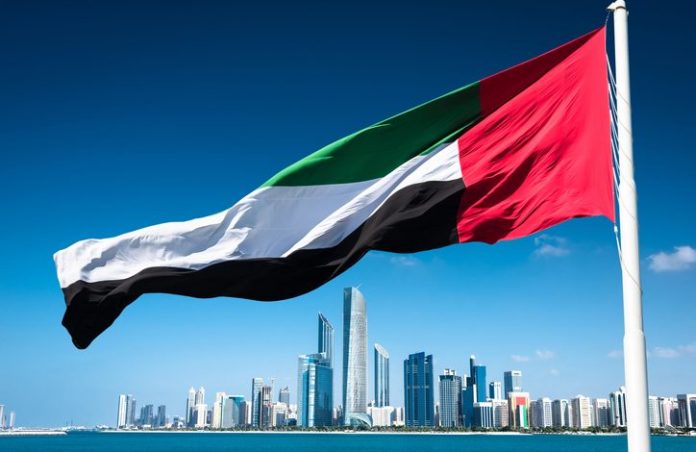This article is written by Ranjana Ramnath who is pursuing a Certificate Course in Media and Entertainment Laws: Contracts, Licensing and Regulations from LawSikho.
Table of Contents
Introduction
The last few years have witnessed an increasing amount of high-profile defamation cases involving social media in the UAE. As per UAE law, publishing derogatory or defamatory comments on a social media platform is no different than publishing a defamatory comment in the newspaper, books and magazines. On the contrary, publishing of a defamatory content on social media attracts a more stringent penalty due to its easy access and informal nature and this can catch the writers of such content off guard. The possibility of damage through social media is undoubtedly much higher and grave than that of a traditional print media owing to its immediate and uncontrollable access. These posts on social media can attract rapid response which can be further shared and reposted within minutes making it “viral” and accessible to an audience much larger and far beyond the geographical limits that the writer had intended. This without a doubt creates a damage that cannot be fathomed.
Even though we are always encouraged to voice our opinions and to use the liberty of freedom of speech, but is this right absolute? Can we really communicate without any barriers and restrictions? Is there a boundary and violation of which attracts legal consequences?
It is a well-known fact that making and spreading false information about another person or entity harms his / its reputation.
Defamation is a complex law. Proving that an act has irrevocably damaged the reputation of another is difficult as reputation is intangible.
What is defamation?
In the United Arab Emirates (UAE), any defamatory comment whether unnamed or not, leads to criminal charges of defamation. This is because unlike the western countries like the United Kingdom and United States of America wherein defamation is a civil offense, in the UAE defamation is considered as a criminal offense.
Article 372 and 373 of UAE Federal Law No. 3 of 1987 (as amended) (the “Penal Code”) lists down the two main offenses of defamation. Article 372 talks of publicity which causes a person to be a victim of public hatred or contempt. Article 373 talks about a malicious or dishonest allegations against an individual which humiliates or demeans a person in the eyes of the public in general.
In order to go ahead with a criminal complaint for defamation, the complainant must prove:
- That prima facie a fake or derogatory comment was made;
- Which was given to a third party (written or verbal); and
- That statement resulted in damage to the complainant.
The Court of Cassation which is the highest court in the UAE opined that a defamatory statement has the capability to humiliate the concerned person (defamed person) or subject him to punishment in the society. Recently, the Court held that if the criticism exceeds “normal limits” or is likely to disturb the reputation of the individual, the same shall be regarded as a defamatory comment.
The punishment for conviction under the Penal Code is a prison term of up to two years or a fine of up to AED 20,000.
However, in the event that such a statement is made against a public servant, the severity of the punishment shall increase.
Any statement which purports to offend any individual`s reputation or family also attracts severe punishment. Any statement intending to insult, abuse or show contempt to any religion is considered as a separate crime having its own penalty.
Though there is no civil remedy for defamation under the UAE law, the complainant does have an option to file a civil claim for damages under the law of torts.
Defamation by electronic means
Federal Law No.5 of 2012 (the “Cyber Crime Law”) considers defamatory remarks passed either on social media or any other electronic means such as Watsapp,websites, SMS and as an offence. Article 20 of the Cyber Crime Law states that any person who by using a computer network or any information technology means insults another of an incident which shall result in the other being a subject of punishment or contempt, then such person shall be considered to have committed an offence under this law.
Like defamation cases under the Penal Code, if the statements are made against a government officer, it will attract a more severe punishment.
Risk for employers
It is vital for all employers to ensure that they clearly explain the risks of social media usage to their employees. In a scenario, where an employee has been charged with a criminal complaint, even if the issue in question is unrelated to their employment or to the employer`s brand, the latter will still be involved in the legal process as they are the sponsors for the employee to reside and work in UAE.
During the course of an investigation, the Police may seek access to the office computers. The Cyber Crime law under Article 41 deals with confiscation of the devices or permanent or temporary deletion of the site or domain name where the crime is committed. This shall be at the discretion of the Court.
Social Media in UAE
Federal Law No. (5) of 2012 regarding Combating Cybercrimes which was amended by Federal Law No. (12) of 2016,along with other laws which protect reputation and privacy apply to all social media users and its is important for both the residents and the citizens of UAE to be aware of these provisions as a violation of these can attract a criminal proceeding.
Federal Decree Law No (2) of 2015 which deals with the law on Combatting Discrimination and Hatred forbids any act (written or verbal) which offends any religion and /or provokes or incites religious disharmony. Insulting God, his apostles of prophets or the holy books come within the purview of the said law.
Several legal risks are involved while using social media in UAE and it is of utmost importance to be mindful of all the applicable laws and its implications. Following are some of the conditions to be kept in mind by all social media users before posting any content:
Photographs
Article 21 of the Federal Law No. 5 of 2012 (the Cyber Crimes Law) lays down that photographing others without their permission is an offense. Furthermore, usage of technology which is likely to invade the privacy of another comes within the purview of this law.
Publishing another person’s picture without their prior consent is an offence under Federal Law No 3 of 1987 (UAE Penal Code). This right is also protected under Federal Law No. 7 of 2002, the Copyright Law.
Confidentiality
Though invasion of someone’s privacy is an offence under the Cyber Crimes Law and the Penal Code, at the same time disclosing confidential information about another person viz an employer is also considered as an offence which could attract a fine as well as temporary imprisonment. This also applies to cases wherein an individual engages in discussions on social media resulting in the breach of another person or entity`s confidential information.
Character Assassination
As mentioned above defamation is a criminal offence in the UAE and can attract stringent punishment under the UAE Penal Code. Thus, publishing or making available any information that puts another in a position of public humiliation will be considered as a defamation thereby attracting penalties under the UAE Penal Code. Posting derogatory comments on social media platforms result in infringement of some interrelated laws in the UAE.
Content contrary to morality
Under the Cyber Crime Law, usage of an IT technology which contravenes public morals and good conduct is an offense. This comprises inter-alia of material that is non- Islamic, lewd or which promotes sinful activities or any content that intends to mock the leaders of the nation or intends to disturb national unity.
It is to be noted that the Cyber Crimes Law extends to social media platforms such as Facebook and WhatsApp, amongst others. WhatsApp chats are admissible as evidence in the Court of Law.
Use of illegal channels for audio or video communication is considered as an offense. Voice of Internet Protocol (VoIP) applications such as Skype, FaceTime, WhatsApp calling and Facebook Messenger calling are blocked in the UAE. Using such applications illegally is punishable with imprisonment and /or fine.
As per Article 47 of the Cyber Crimes Law any individual who has committed a crime under the law can be prosecuted even if he is outside the country. This applies in cases where the subject of crime is a website or IT system relating to the national or local government of each Emirate or any institution owned by them.
Additionally, the law specifies numerous penalties for various cyber-crimes including insult to religions and rituals, slandering public officials and forging official electronic documents, transmitting or re-publishing pornographic materials or reproducing credit/debit card data, as well as obtaining pin codes or passwords.
License requirements of social medial influencers in UAE
Social media influencers are individuals who intend to make money by creating an unique individual identity by posting on their social media accounts thereby attracting numerous followers and subsequently sponsors or brands.
At the start of 2018, the National Media Council in UAE laid down the Electronic Media Activity Regulation Resolution 2018, for individuals or companies associated with “E-Media.”
Social media influencers in UAE are now required to obtain a license from the National Media Council if paid advertisements are accepted on their accounts. This license is generally for a period one year and can be renewed upon expiry. This is applicable for individuals who have their blog or vlog or those intending to post on their Instagram or Facebook accounts. These rules are applicable to citizens and residents. In cases where an organization intends to use an influencer to promote their product or image, they are required to have legal licenses before commencing use of the services of the influencers.
Conclusion
The UAE’s wide range of media platforms are monitored on par with international standards keeping in mind the socio-economic needs of the nation. Apart from handling the present regulations, UAE is also working towards its development and hence media cities were formed by local governments to support local, regional and international businesses to establish offices that produce the best art in all forms. UAE also takes keen interest in promoting films. As these media platforms have today formed an important part of our lives, it is thus imperative to have the knowledge of the legal implications of its violations.
References
- https://www.clydeco.com/en/insights/2019/04/defamation-and-social-media-in-the-uae
- Federal law no 3 of 1987 (Penal Code)
- Federal Law no 5 of 20152 (Cyber Crimes Law)
- https://www.tamimi.com/law-update-articles/legal-risks-for-social-media-users-in-the-uae/
- https://www.stalawfirm.com/en/blogs/view/regulation-of-media-in-the-united-arab-emirates.html
- https://www.lexology.com/library/detail.aspx?g=fa8c7e75-8b1c-4e1a-98db-139d8379792e
Students of Lawsikho courses regularly produce writing assignments and work on practical exercises as a part of their coursework and develop themselves in real-life practical skill.
https://t.me/joinchat/J_0YrBa4IBSHdpuTfQO_sA
Follow us on Instagram and subscribe to our YouTube channel for more amazing legal content.
 Serato DJ Crack 2025Serato DJ PRO Crack
Serato DJ Crack 2025Serato DJ PRO Crack











 Allow notifications
Allow notifications


